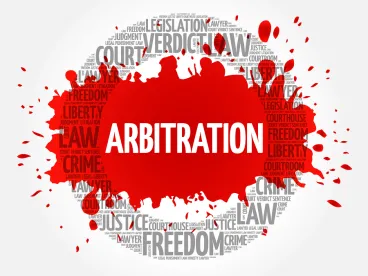In a unanimous decision issued on September 11, 2020, the New Jersey Supreme Court held in Flanzman v. Jenny Craig, Inc., that an arbitration agreement does not need to designate an arbitral forum (such as AAA or JAMS) or describe the “process for selecting an arbitration mechanism or setting” to be enforceable. In so holding, the Court reversed the Appellate Division decision that imposed such a requirement and reinstated the trial court’s decision compelling the parties to arbitrate their employment dispute.
Flanzman v. Jenny Craig, Inc.
The facts of this case are straightforward. Plaintiff Flanzman began working for Jenny Craig, Inc. in July 1991. She signed a document entitled “Arbitration Agreement,” in May 2011. This agreement provided in part that “all claims or controversies arising out of or relating to Employee’s employment, the termination thereof, or otherwise arising between Employee and Company shall, in lieu of a jury or other civil trial, be settled by final and binding arbitration.” The agreement did not identify an arbitration setting. Flanzman’s dispute with her employer arose in February 2017 when she was eighty-two years old. After the employer reduced Flanzman’s hours on three occasions, Flanzman left her employment with the company and sued the company for, among other things, age discrimination under the New Jersey Law Against Discrimination (NJLAD).
The employer made a motion to dismiss the lawsuit and compel arbitration under the arbitration agreement, and Flanzman opposed that motion arguing that the agreement was unenforceable because it did not identify a forum for the proposed arbitration. The trial court agreed with the employer and compelled arbitration. Flanzman appealed, and the Appellate Division reversed the trial court, invalidating the arbitration agreement because it did not identify the arbitral forum the parties would use to arbitrate their dispute.
New Jersey Supreme Court
The New Jersey Supreme Court disagreed with the Appellate Division and found that it was not necessary for an arbitration agreement to designate a forum for the arbitration because the New Jersey Arbitration Act (NJAA) “provides a default procedure for the selection of an arbitrator and generally addresses the conduct of the arbitration, clearly express[ing] the Legislature’s intent that an arbitration agreement may bind the parties without designating a specific arbitrator or arbitration organization or prescribing a process for such a designation.” In so holding, the Court looked to the Federal Arbitration Act (FAA) which represents a “federal policy favoring arbitration agreements, notwithstanding any state substantive or procedural policies to the contrary.” The FAA also includes a provision allowing a court to designate an arbitrator if the governing contract fails to do so. The Court observed that, like federal law, New Jersey law favors arbitration for resolving disputes, and the NJAA also “provides general guidance as to how the arbitration will proceed.” Accordingly, and “[i]n light of the NJAA’s default provisions supplying terms missing from an arbitration agreement, a court’s enforcement of an agreement supplemented by those terms comports with common-law principles of New Jersey contract law.” Therefore, while parties to an arbitration agreement are free to agree upon an arbitrator or arbitral organization, they are not required to do so for the agreement to be valid, as the NJAA’s “default provisions are available to parties who leave those issues unresolved.”
In Flanzman, the Court also rejected the plaintiff’s secondary argument that the arbitration agreement should be invalidated because it did not contain a choice-of-law provision and might require her to pursue her NJLAD claims in California based on a reference in the agreement to California filing fees. While the trial court had held that California law would apply and the forum for the arbitration would be California, the Supreme Court disagreed. It held that the agreement was silent on the issue of choice of law and jurisdiction and the arbitrator could resolve this issue.
Arbitration Agreements
This decision reaffirms that arbitration is a favored mechanism for resolving disputes under both federal and state law and should smooth the path for parties who seek to arbitrate their disputes even absent a provision designating an arbitral institution or a mechanism for choosing the arbitration setting. However, employers should take note of the Court’s observation that including a “detailed description of the contemplated arbitration in an arbitration agreement enhances the clarity of the agreement.” Parties may want to consider a primary, as well as an alternative, method of choosing an arbitral forum in case the first choice is unavailable. Including such provisions in an arbitration agreement might be preferable as they could afford the parties more control over the resolution of their dispute and facilitate a more efficient proceeding. There may, of course, be reasons to defer making these designations. All of these are important issues that all parties should consider when preparing arbitration agreements.



 />i
/>i
